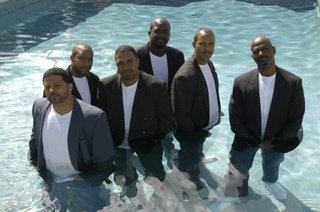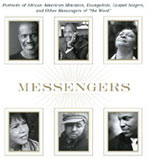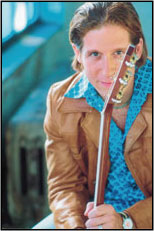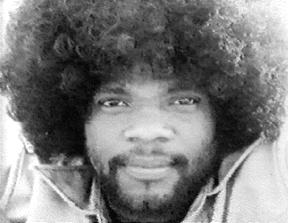In this article from the Chicago Sun-Times, architecture critic Kevin Nance reports some good news regarding Pilgrim Baptist Church: There are enough records, photographs and documentation related to the original building to rebuild the church in a way true to its original form.
From the article:"There's not many buildings where you have this kind of documentation to tell what was there," says Chicago cultural historian Tim Samuelson, who worked with architect and Sullivan expert John Vinci to restore Pilgrim Baptist in the mid-1980s. "It's one of the great tools in trying to figure out how to put the building back together again. Luckily, we have the photographs, we have the drawings, we have the castings. If you wanted to rebuild this church, there's enough information to be able to responsibly do it and have a degree of accuracy and integrity that would be critical to justify doing it."
Now, the church needs the funds to make that happen. The website of the Chicago Historical Society lists an address where you can send donations and links to a photographic retrospective of the building.
Tuesday, March 28, 2006
Monday, March 27, 2006
Review: Feels Good--Take 6

Take 6
Feels Good (Take 6 Records)
Released March 2006
reviewed by LaTonya Taylor
4.5 out of 5 stars
Sounds like … a capella vocal jazz, gospel and R&B for fans of artists like The Manhattan Transfer, Acapella, Boys II Men and Glad.
At a glance … a return to Take 6's a capella roots, Feels Good is a reminder that when it comes to vocal jazz, these peerless cats haven't merely built a eclectic musical home of their own—they own the block.
Feels Good begins a new era for Take 6 as the first album on their eponymous label. Yet it's grounded in their unique blend of a capella vocal jazz, gospel, pop and R&B. This musical brew is a combination of contagious joy and the appearance of cool-cat, unstudied ease—the kind of "unstudied" ease one develops after writing, rehearsing and performing with the same group for more than 20 years. So casual listeners sing along within a chorus or two—and music lovers uncover new layers of complexity years after the first listen. And this album doesn't disappoint either audience.
Opening with the celebratory "Come On," Take 6 then adds a Sabbath-morning gospel ad-lib vamp to a crisp arrangement of Andrae Crouch's classic "This Is Another Day," before the cool, swing-rock of "Feels Good" (listen for a playful reference to "I Got Life" from 1994's Join The Band). John Stoddart's "Wait for the Sunshine" develops themes of patience—for good things ahead, for healed relationships, for courage to pursue dreams.
"Family of Love" eases into a reflective phase of the album that also includes "More Than Ever," a radio-ready R&B song over two-man snap-clap percussion, as well as the confident "Set U Free." Take 6's trademark diversity is represented in the natural transition from the joyous jazz standard "Just in Time" into an arrangement of Twila Paris' richly meditative "Lamb of God." "You Can Make It—Go On!" is a funky thematic bookend.
Fans with extensive Take 6 catalogues might be a shade disappointed that earlier arrangements of two of the album's tracks—"This Is Another Day" and "Family of Love"—appear elsewhere. On a 40-minute album, it'd be cool to have an extra new track or two to savor, or maybe an extension of "Vinterlude" or the tribute "I'll Never Turn Back No More." But we—um, they—shouldn't be too greedy. If the last 10 albums are any indication, there's plenty to tide us over 'til the next one.
Gospel Gal Interview: Jazzed about Take 6

Jazzed About Take 6
by LaTonya Taylor
A verbal interlude on an early Take 6 album says that "all the sounds on this next song, including the drums, are created using the human voice or some other part of the anatomy." The reason for the playful explanation is clear: A capella is the easiest way to describe the blend of tight harmonies, multilayered aural surprises and stylistic eclecticism that characterizes a group that Quincy Jones calls "the baddest vocal cats on the planet." Take 6's genre-busting blend of spirituals, doo-wop, R&B, gospel and vocal jazz have earned plenty of accolades—including 10 Grammys!—since their 1988 self-titled debut. All solid Christians, the six members have earned respect all around, from Christian and mainstream audiences and collaborators. In this interview, first tenor Mark Kibble looks back at his very first experience with the group, talks about their new album, and discusses what success looks like after two decades together.
The story of how you joined the group is pretty cool. Would you mind sharing it?
Mark Kibble: Claude McKnight was a freshman at Oakwood College, and he'd started a group. They were in a campus bathroom, rehearsing for a concert that night, and I happened to be passing by and heard them singing. I recognized Claude's voice, because we grew up together. So I went in to listen, and, since I knew the song, added a fifth part. They liked it so much, they said, "OK, you've got to sing with us tonight." We went right up from that bathroom and performed. The beginning of Take 6 was born.
What song were they singing?
Kibble: A song we still sing: "If we ever needed the Lord before, we sure do need him now."
You were pretty young.
Kibble: I was still in high school, 16 or 17. My high school was near Oakwood College, so students attended a lot of the same events. That made it easy for us to rehearse and perform. From there it grew, but it was a long time growing. We got immediate recognition around the college. People loved to hear us sing, but the faculty of the college did not.
Why?
Kibble: We were just a little too different from what they expected, and were perceived as a threat, so much so that they tried to shut us down.
Really? What do you mean?
Kibble: The faculty members were very reluctant to have us sing for college events, and we would just show up and sing and get a huge response. Then, they made a rule that if you sang in a college-sponsored group or choir, you couldn't be in any other groups of more than four people. Of course, we were more than four. But that didn't even matter to me. It mattered more that I stick to this particular thing that we had, because it was so good.
Do you think the objection was really about the number of people in the group, or about your style?
Kibble: I think part of the reason was that if you were in another group, you might run into scheduling conflicts when it came to rehearsals or performances with college-sponsored groups. But, yes, I think it really was about the style.
Why?
Kibble: Oakwood is a Christian school, and historically, there's always been a resistance toward anything jazzy. We were very jazzy. And even though we were not using jazz instruments, we sounded like we were. That was enough. Change is always hard, especially in environments like that. And they just didn't know what to make of us. So, they tried to keep the reins tight.
There's a history of Christians being resistant to jazz music.
Kibble: Ever since the early 19th century, you were either singing in church, or you were singing in the jazz clubs. But depending on what you're singing about, a lot of jazz and gospel stylings are almost identical, especially with early gospel music. What's accepted as traditional gospel music today met resistance at first, because the style was so close to what people heard in jazz clubs. We experienced that generational resistance at first.
Let's talk about Feels Good, your new CD. It seems that Take 6's albums tend to alternate between a capella style, then one that branches out stylistically. Is that an accurate perception?
Kibble: It's fairly accurate, yes. I think every album for us is a new type of experiment, but we do realize who we are. A capella's our base, so we figured we always come back to that at some point.
Take 6 has always drawn from a lot of sources. On Feels Good, those sources are as diverse as the jazz standard "Just in Time," then Twila Paris' "Lamb of God." What do you listen to that gives you that sense of diversity?
Kibble: There's a large, diverse pool of songs, writers and musicians that I listen to. I appreciate so many different kinds of music, and bringing them all together and converting them into what we do is the biggest task. For this album, I was the point person, so I got to decide everything (laughing). There were a lot of good songs, and it came down to songs that felt like their time had come, flavors needed to fill the whole pie.
When Cedric [Dent] and I were arranging "Just in Time," we thought, Isn't it crazy that this jazz standard, to us, describes the way Christ came into our lives and became everything? So we didn't change any lyrics; it just fit for us. When Cedric heard Twila Paris' "Lamb of God," he was so inspired by it, the Spirit just came on him and he did the arrangement for it. When I first heard it, I said, "We have to put that on the album." It was just that powerful. In concert, we do those songs back to back.
Feels Good is the first album on Take 6 Records. How did you decide to form a record label?
Kibble: First of all, praise God for it! We've been with Warner Brothers our entire career, and toward the latter three quarters of that time, we experienced such a lack of interest. They would allow us to do CDs, but just kind of drop 'em after we did 'em.
We also realized that record companies may put up a lot of money to produce the CDs, but they also get all the returns. So, it made sense for us to use our finances and our abilities to just do it! And to let God bless it and bless us in the meantime (laughs hard)!
You're putting up your own money? I'm sure you're hoping that (laughing)!
Kibble: I'm not even hoping that. I'm believing!
What challenges has entrepreneurship presented?
Kibble: It's a lot of work. Before, with Warner, we'd make an album, and turn it over to the "machine." Now we have to put our own machinery in place. That took a little work, and it still taking a bit of work. But with God's help, it's going to happen.
Take 6 has won 10 Grammys and is the most-nominated group in Grammy history. Now you have your own label. How do the six of you define success after this?
Kibble: It's all relative (big laugh). I can't say that we're not successful. We've been honored so many times. We've been doing this thing for so long, and we're still doing it. That says a lot. We've sold many, many albums over our entire career. That speaks for success.
It would be great to enjoy another wave of huge, visible success. Some people measure success in financial terms. We've struggled over the last 10 years financially. It's been difficult for us to hang together and do things, but God has maintained us. None of us is starving or hurting deeply financially. We're OK. That, to us, is success.
Looking forward, if we can sign artists and have them see some visible success, that'd be wonderful. But whatever God decides for us is going to be fine. If he decides, "You're gonna have this much, and no more, because you can't handle any more," or "I'm just not ready for you to be there," that's OK. Just as long as we're within what God wants us to do, we're gonna be fine.
Why is it possible to be so successful artistically, and still struggle financially?
Kibble: It goes back to that record company thing. When an artist or group is charting and selling out concerts, it doesn't necessarily mean that the money is coming back to them. It means that the investors who make the deals are getting money.
That happened to us. We were highly, highly successful in the early '90s—and hardly saw a penny of it. I know pop groups that scream that same thing. And while they may have mansions and drive great cars, considering how much money they actually made for a record company, they hardly have anything.
That's why we decided to go ahead and form our own record company. So that all that money that goes out there, when people buy the CDs, we'll actually get the larger percentage of what comes back, rather than building another Warner Brothers building. It just depends on how you have your money managed.
You had a friendship with Ray Charles. What are your memories of him?
Kibble: Well, of course, we did a song with him on our Join the Band album. And we were almost on his very last CD.
Genius and Friends?
Kibble: We'd actually done the title cut for it. But by the time we finished it, he was already too ill to perform it. But my memories with him are so great, because I actually got to spend time with him in his studio, bringing him the material. He didn't allow me to watch him to record; he just said, "You just give me the music, and I'ma do my thing, and I'll send it back to you." I gave it to him, let him listen to it, watched him go around his whole studio, knowing where every button was, threading the tape machine, the whole nine. He had a great appreciation for what we do, and for me, so our friendship was great. I had many conversations with him, and it was just a wonderful experience.
We talked earlier about how Oakwood College was less than supportive at the beginning of Take 6. Are you highly valued alumni now?
Kibble: (laughing hard) Twenty years later, yeeeeah!
Hilarious!
Kibble: They've had us back to do shows, and they've honored us. But it took 10 years before they even considered it (laughs)! But you know, at least we're still alive!
How does a group stay together for so long and keep things so fresh?
Kibble: Our mission and our love for Christ bind us together. We know that God brought us together in the first place. There's no way that we could have done it. We came from different parts of the country, and he handpicked us. Even when one of us left, God brought in my brother Joey, who's become our spiritual leader. We're all brothers.
Even now that Cedric is teaching [at Middle Tennessee State University] and can't always go out on the road with us, we've found another brother who fills in when he cannot make it—Khristian Dentley, a young, super-talented guy. He's got the same mindset and the same spirit, and we're so happy God brought him to the table. When God does stuff like that, you know you're not supposed to stop. God is not through with what we have to do, so our mission is sure, and we're going to continue until God says to do something else.
image credit: www.take6.com
Sunday, March 26, 2006
Happy Birthday, Aretha Franklin
The Queen of Soul turned 64 yesterday.
"If a song's about something I've experienced or that could've happened to me, it's good. But if it's alien to me, I couldn't lend anything to it. Because that's what soul is all about."
--Aretha Franklin, quoted in the Detroit Free Press
"If a song's about something I've experienced or that could've happened to me, it's good. But if it's alien to me, I couldn't lend anything to it. Because that's what soul is all about."
--Aretha Franklin, quoted in the Detroit Free Press
Saturday, March 25, 2006
Two Shouts in One Day

When it comes to worship, I've always been more of a silent crier than a shouter. But today, listening to Benita Washington's version of Walter Hawkins' "When the Battle Is Over," I had to shout. Jump up and down, dance for joy. My heart was full, and it just had to come out. (The song is on Washington's debut album, Hold On, which in my opinion was one of the best gospel albums of 2004).
Later today, a friend put Avalon's latest album, Stand. As we listened to "Orphan of God," we started singing the chorus loud and strong, tearing up all the way home.
Two shouts, two genres, two very different women, one day.
What songs make you shout?
Wednesday, March 22, 2006
Did Anyone Take Back the Music?
An interesting discussion started over on hip-hop webmaster Davy D's website several weeks ago: Did anything ever come of Essence magazine's Take Back the Music Campaign? Here was my take on the issue at the time; now I'm curious about whether or not anything came of it . . .or are people still just talkin' 'bout revolution? The discussion didn't go too far on Davy's site, but perhaps we can discuss amongst ourselves . . .
Tuesday, March 21, 2006
The Wait Is Over--And It Sure Feels Good
 Take 6 fans,
Take 6 fans,Today is release day for the long-awaited Feels Good! So . . .get online or out to the bookstore and pick up your copy. It's the group's first album on their very own label, Take 6 Records, so buying your copy means supporting these artists more directly than before.
I'll post my review--and an interview with Mark Kibble--here in the next few days.
A Review . . .and A Preview

MESSENGERS: Portraits of African American Ministers, Evangelists, Gospel Singers, and Other Messengers of “the Word”
David Ritz
Photographs by Nicola Goode
Doubleday
224 pages
$29.95
David Ritz learned about Christianity through black music. As a teen, his love for jazz led him to R&B and then gospel. As a music journalist and ghostwriter, he wrote and co-wrote acclaimed biographies of musicians like Ray Charles, Marvin Gaye and Aretha Franklin, whose sounds were rooted in the African-American church.
In his 60s, Ritz, who is Jewish, opened his heart to the Savior whose voice he had heard in the songs he loved. MESSENGERS is his tribute to contemporary musicians, artists and ministers who have encouraged him during his journey. Twenty-five ministers from diverse backgrounds and a continuum of theological perspectives share their own moments of transformation—one from a shy girl to a powerful preacher, another from a life based on legalism to one rooted in grace—in a series of poetic, lyrical vignettes. Though several of Ritz’ subjects are high-profile ministers and well-known gospel singers, others are ordinary people whose sphere of influence is primarily local or denominational. All share deeply powerful stories.
Photographer Nicola Goode captures each minister in evocative portraits that make MESSENGERS part elegant coffee table volume, part satisfying testimony service.
-Gospel Gal
OK--so there's my review, which ran in the April 2006 issue of Christianity Today magazine. Now for the preview: In a couple of weeks, I'll be running an interview I did with David Ritz, the book's author and one of my Professional Heroes, on ChristianityToday.com and here on gospelgal.com. I know you'll enjoy it! Check in again soon--or subscribe so you'll get an e-mail when it's posted. In the meantime, go buy your copy of MESSENGERS. Gospel Gal says!
Monday, March 20, 2006
Tear Down the Walls

Rick Recht's album blends Jewish and African American culture in an interfaith project designed to inspire teens to fight racism.
by Gospel Gal
For Jewish rock musician Rick Recht, music, heritage and social justice have always gone together. Recht is known for writing songs that celebrate Jewish heritage and culture in contemporary forms. "I'm a teacher," he says. "I happen to play music—that's my medium."
Recently, the guitarist felt a need to take his music beyond the stage. "Over the last couple of years, I started getting an itch for coming up with a way to make these songs turn into action," he says. "I wanted to give kids an action plan—something to do with it rather than just to feel good about it."
The resulting action plan includes a CD, Tear Down the Walls, featuring Recht's contemporary, guitar-driven rock (similar to Steven Curtis Chapman or Dave Matthews), and a touch of gospel, with background vocals by black and Jewish teens. Released in partnership with the Anti-Defamation League, it's part of a four-phase program designed to train teens to fight racism and to lead diversity awareness programs. Recht, who is white, hopes the program and an album-based curriculum can spread to cities beyond his native St. Louis.
"When teenagers get into something, they become role models for everyone who's younger than them, and they become role models for everyone that's older than them," he says. "Have a teenager lead, and everyone's gonna listen."
As part of the recording process, Recht gathered a group of Jewish teens and drove down to Memphis' Stax Academy, a charter school operated by Soulsville, a non-profit organization that also operates the Stax Museum of American Soul Music. There, they joined local Jewish and African-American students in listening to two speakers: Rabbi Micah Greenstein, co-author of a
 chapter of Quiet Voices: Southern Rabbis and Black Civil Rights 1880s to 1990s, and Rev. Samuel "Billy" Kyles, an African-American pastor and Civil Rights leader who witnessed the assassination of Dr. Martin Luther King. Then, together the students recorded "Avadim Hayinu," which blends Hebrew lyrics describing the Israelites' journey from slavery to freedom with the lyrics to "We Shall Overcome." The song features soulful lead vocals from one-time American Idol contestant Philippe Crymes. The group later performed the song at Memphis' National Civil Rights Museum on Martin Luther King Day.
chapter of Quiet Voices: Southern Rabbis and Black Civil Rights 1880s to 1990s, and Rev. Samuel "Billy" Kyles, an African-American pastor and Civil Rights leader who witnessed the assassination of Dr. Martin Luther King. Then, together the students recorded "Avadim Hayinu," which blends Hebrew lyrics describing the Israelites' journey from slavery to freedom with the lyrics to "We Shall Overcome." The song features soulful lead vocals from one-time American Idol contestant Philippe Crymes. The group later performed the song at Memphis' National Civil Rights Museum on Martin Luther King Day."Just looking at our histories," says Recht, "we really do have a strong commonality of oppression as minorities, and I think we have a lot to learn from each other by reigniting the relevance of oppression, and the relevance of community, and of safety."
At Rabbi Greenstein's suggestion, Recht recorded the African-American national anthem, "Lift Every Voice and Sing" in his contemporary style. Recht's version of the historic anthem sounds similar to the praise-and-worship music one might sing in an evangelical megachurch.
"The lyric resonates with me and with the Jewish community in general," he says. "I wanted to create an upbeat, really relevant version of it."
The reaction to the piece in multicultural, interfaith gatherings has been mostly positive, partly because Recht explains the history of the poem, written by James Weldon Johnson, wherever he performs. "We have sacred pieces as Jews, and this is, certainly to the African-American community, a very sacred piece," he says. "It's very important to me that people understand the meaning, the intention, and the history of this piece every time I play it in a live setting." After his explanation, he asks people to follow the black tradition of standing when the song is played "out of respect for what this song means not just to one people, but to all people."
The album also features the St. Louis' Cote Brilliante Presbyterian Church Choir on "Let My People Go," a call-and-response chorus that tells the story of the Exodus.
"The Exodus is an experience that resonates for so many religions, particularly the Jewish and African-American experience of oppression," he says. "But you hear those words come out of a lot of people, from a lot of different backgrounds, because most religions throughout history, if not in the present, know what it means to be oppressed."
To Recht, learning from the traditions of others strengthens his own commitment to work for justice.
"When you know what it means to be oppressed, you know what it takes to survive. And you know why you need to believe in God and why you need to have faith, and why you need to have love."
Sunday, March 19, 2006
I Got a Song, Ain't Got No Melody . . .
 Lately I can't get the Billy Preston song "Will it Go 'Round In Circles" out of my head (a good thing, in my mind).
Lately I can't get the Billy Preston song "Will it Go 'Round In Circles" out of my head (a good thing, in my mind).When I mentioned this to my mom, she told me about Billy's career as a gospel organist (Whoo-hoo, Gospel Gal's mom!). I'm collecting info for a post about him, and discovered this post from fellow music blogger Red Kelly of The "B" Side. A worthy read.
Billy's been sick lately, but does have some dates on his schedule.
image credit: www.beatlesagain.com
Monday, March 13, 2006
Someone Found This Site . . .
Sunday, March 12, 2006
Shades of Praise
From NPR, a really neat story about Shades of Praise, an interracial, interdenominational choir in New Orleans. Founded by a Loyola University theology professor and led by the pianist for a New Orleans R&B legend, it's been a fixture on the N.O. scene for several years.
Beyond that, though, it's a model for the way people of different races and classes can grow in community together--through good times, and now following Hurricane Katrina. One singer notes, "This group represents what the city could be." Listen--and let me know if you were as moved as I.
Beyond that, though, it's a model for the way people of different races and classes can grow in community together--through good times, and now following Hurricane Katrina. One singer notes, "This group represents what the city could be." Listen--and let me know if you were as moved as I.
Saturday, March 11, 2006
An Ethnomusicologist on the Air
From the Naples Daily News, a profile of Dick Spottswood, host of WAMU's bluegrass-themed radio program.
Another Reason to Love the Music . . .
"'Oh, honey! It makes you feel relaxed, you feel it all over your bones . . . "If you're depressed, that's the great tool for getting yourself out of depression.'"--Ruthie Macon on gospel music, quoted in the Marion Chronicle-Tribune
More on Jazz in Church
Here's a wonderful article from yesterday's Chicago Tribune: Churches get in groove with jazz. My favorite quote: "'I see jazz as mirroring God's continuing creation in the world,'" said Pastor Janet Volk of Northlake Lutheran Church in Northlake. "'You never know what's going to happen.'"
My own life has taken a jazzlike, unexpected turn. More on that later! In the meantime: What's the most jazzlike twist your life has taken? If your life were a jazz song, which would it be?
My own life has taken a jazzlike, unexpected turn. More on that later! In the meantime: What's the most jazzlike twist your life has taken? If your life were a jazz song, which would it be?
Subscribe to:
Comments (Atom)
